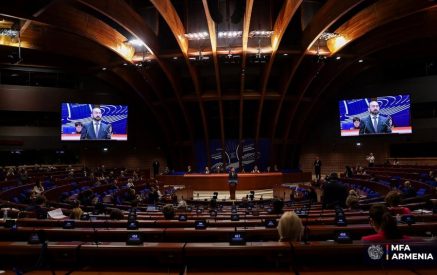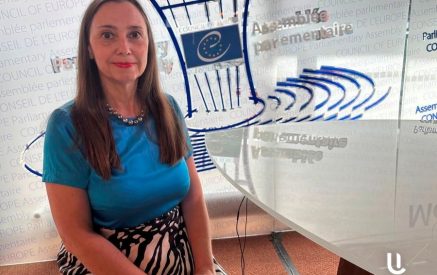Joint statement by Baroness Doreen E. Massey (United Kingdom, SOC), PACE Rapporteur on “Addressing sexual violence against children: stepping up action and co-operation in Europe”, and Dimitri Houbron (France, ALDE), PACE Rapporteur on “For an assessment of the means and provisions to combat children’s exposure to pornographic content”, on the occasion of the European Day on the Protection of Children against Sexual Exploitation and Sexual Abuse (18 November):
“Today, on this day, we call on all parliaments to give high priority to addressing the issue of harmful use of children’s self-produced sexual images and videos.
Disturbingly, over a third of child sexual abuse imagery online is estimated to have been produced by children themselves. Photos and videos that are made for private purposes are shared by other people, used for cyber-bullying, for sextortion (extortion based on sexual images) and as ‘revenge porn’ (unintended use of sexual images by former partners), and end up on websites such as Pornhub, which is one of the world’s biggest pornography sites.
In the context of the COVID-19 pandemic, with children spending more time online, the number of such images on the Internet has surged. Europol provides useful insights on this topic in its report on Exploiting isolation: offenders and victims of online child sexual abuse during the COVID-19 pandemic.
Read also
How can we tackle the surge in sexual images produced by children? First of all, legislation needs to be reviewed. UN guidelines offer suggestions on how States should approach the increasing number of sexually explicit images/videos produced by children themselves. Children should never be held responsible for sharing these materials.
Over-sexualisation of children needs be addressed. A free online programme for parents of teens run by the NGO ‘Culture Reframed’ guides parents on how to build teens’ resilience and resistance to hypersexualised culture, and understanding of the impacts of pornography, which has become easily accessible to children in recent decades (the average age of first exposure to pornography is between 9 and 11 years old). Introducing and reinforcing effective age verification procedures can help address these issues to some extent.
Children should be made aware of the potential dangers of sharing sexual images, be it through education, awareness-raising campaigns or discussions with parents or friends. In Switzerland, the Pro Juventute Foundation has produced a short video in several languages (see below) to alert children and young people to the possible consequences of sharing sexual images.
Support to children needs to be provided and should be easily accessible. As part of our contribution to the European Day, we have compiled a list of helplines in Council of Europe member States. We are grateful to the countries that have already responded to our call, and will continue updating this list in the coming months.
The most recent monitoring cycle of our organisation’s Lanzarote Committee, which oversees the Council of Europe’s convention to protect children against sexual exploitation, is dedicated to the issue of the production and sharing of online images by children, as well as to the national measures put in place to protect minors against the criminal exploitation of such content. We encourage all parliaments to examine the examples of good practice, as well as the conclusions and recommendations of the Lanzarote Committee, and to take action to address the issue of self-produced sexual images and videos.
We need to acknowledge that this is a widespread problem, and increasingly young children are involved. Unintended use of sexual images and videos has damaging and lasting consequences on the children concerned, including depression, self-harm and suicide. We need to find ways of dealing with this disturbing phenomenon in a way that reduces the damage to children’s well-being and helps children become more resilient. For this, we need to break taboos, and to speak openly about this problem.
Every child needs to be protected and supported. We all need to know when help is needed and how this can be done.
Join us in raising awareness of the harmful use of children’s self-produced sexual images and videos. Be it a tweet, an interview, a parliamentary hearing or a new law – every action counts. Pass the word about 18 November – End Child Sex Abuse Day – and help to make it known around you.”
PACE
Photo credit: Pro Juventute Foundation, Switzerland.






















































